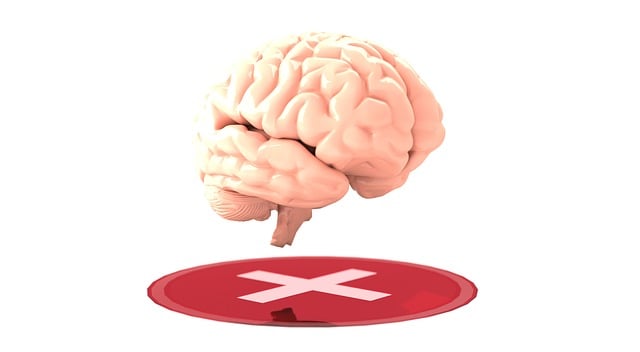Lone Tree Sexual Addiction Therapy offers specialized mental wellness coaching programs tailored to address specific challenges and foster lasting positive change. Combining evidence-based practices like Crisis Intervention Guidance, Mind Over Matter, and Compassion Cultivation, these programs empower clients through self-care routine development and stress management tools. By emphasizing accessibility via online platforms, flexible scheduling, and personalized sessions, the therapy reaches diverse individuals, revolutionizing mental health support with tailored, affordable care. Continuous improvement is ensured through objective assessments, regular check-ins, feedback, and tracking of symptom reductions, coping strategy gains, and quality-of-life improvements.
Mental wellness coaching programs have emerged as a vital tool for addressing growing mental health challenges. This article explores the development of these programs, focusing on key aspects such as understanding the need, designing targeted models (with a case study on Lone Tree Sexual Addiction Therapy), promoting accessibility, and measuring success. By examining these components, we highlight effective strategies to enhance mental wellness support, especially in specialized areas like sexual addiction therapy.
- Understanding the Need for Mental Wellness Coaching Programs
- Designing Effective Coaching Models for Specific Issues: A Case Study on Lone Tree Sexual Addiction Therapy
- Implementing and Promoting Accessibility in Coaching Services
- Measuring Success and Continuous Improvement in Mental Health Coaching
Understanding the Need for Mental Wellness Coaching Programs

In today’s fast-paced and often stressful world, the demand for mental wellness coaching programs has never been higher. Traditional therapy models may not always meet the diverse needs of individuals grappling with issues like loneliness, sexual addiction, or acute crises. This is where Lone Tree Sexual Addiction Therapy steps in, offering a tailored approach that goes beyond symptom management. Mental wellness coaching programs fill a crucial gap by focusing on building resilience, cultivating coping mechanisms, and empowering individuals to take an active role in their mental health journey.
By integrating evidence-based practices such as Crisis Intervention Guidance and Mind Over Matter principles, these programs provide clients with the tools they need to navigate life’s challenges. Compassion Cultivation Practices, for instance, fosters self-compassion and understanding, enabling individuals to approach their struggles with greater resilience and hope. This holistic approach addresses not just symptoms but also underlying factors contributing to mental health disparities, paving the way for lasting positive change.
Designing Effective Coaching Models for Specific Issues: A Case Study on Lone Tree Sexual Addiction Therapy

Designing Effective Coaching Models for Specific Issues: A Case Study on Lone Tree Sexual Addiction Therapy focuses on creating tailored coaching programs to address unique mental health challenges. This approach recognizes that various issues, like sexual addiction, require specialized strategies. By studying successful initiatives such as Lone Tree Sexual Addiction Therapy, coaches can learn to develop targeted models that foster meaningful change.
The case study highlights the importance of integrating self-care routine development for better mental health into coaching sessions. It also emphasizes the role of mental health awareness and stress management workshops in empowering individuals to overcome addiction. These integrated strategies not only enhance clients’ understanding of their conditions but also equip them with practical tools for managing stress and improving overall well-being, showcasing the potential for transformative coaching experiences.
Implementing and Promoting Accessibility in Coaching Services

In today’s digital era, the development of mental wellness coaching programs is more crucial than ever. Implementing accessibility in these services ensures that support is available to a broader range of individuals, including those facing specific challenges like sexual addiction. For instance, Lone Tree Sexual Addiction Therapy has pioneered ways to integrate compassion cultivation practices into coaching models, making it accessible and effective for diverse populations. This approach not only enhances mental health education programs design but also fosters a more inclusive environment where people can openly discuss and address their issues.
Promoting accessibility involves considering various factors such as providing online platforms, offering flexible scheduling, and tailoring sessions to meet individual needs. By doing so, Mental Wellness Coaching Programs Development can ensure that coaching services reach folks in hustle and bustle environments or those with limited mobility. This strategy aligns with the broader goal of revolutionizing mental health support, making it accessible, affordable, and tailored to each person’s unique journey, just like Lone Tree Sexual Addiction Therapy has done for its clients.
Measuring Success and Continuous Improvement in Mental Health Coaching

Measuring success and fostering continuous improvement are vital components of any effective mental wellness coaching program. In the context of Lone Tree Sexual Addiction Therapy, for instance, assessing progress involves a multifaceted approach tailored to individual client needs. This could include tracking reductions in symptoms associated with addiction, increases in coping strategies, and improvements in overall quality of life. Regularly scheduled check-ins, comprehensive assessments, and standardized tools can help quantify these changes objectively.
Coaching programs should also emphasize the development of inner strength and adherence to mind over matter principles as key markers of success. By encouraging clients to cultivate resilience, self-compassion, and effective stress management techniques, coaches enable them to navigate challenges more adeptly. Continuous improvement is fostered through ongoing feedback mechanisms that allow both coach and client to identify areas for growth, adjust strategies accordingly, and ultimately enhance the transformative process.
Mental wellness coaching programs, as exemplified by the successful case of Lone Tree Sexual Addiction Therapy, are vital tools for enhancing mental health. By understanding specific issues and designing tailored coaching models, we can significantly impact individuals’ lives. Accessibility and continuous improvement measures ensure these programs reach a wider audience, offering sustainable support. As we navigate the digital era, it’s crucial to keep refining these initiatives to promote overall well-being and foster thriving communities.














